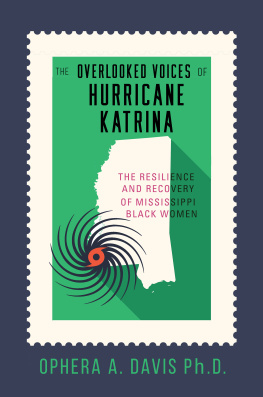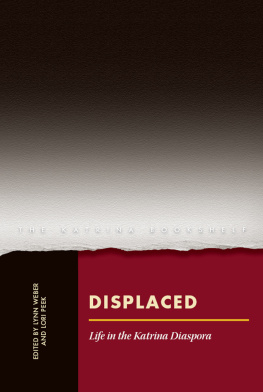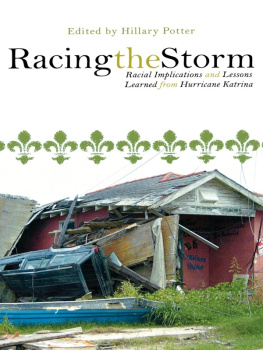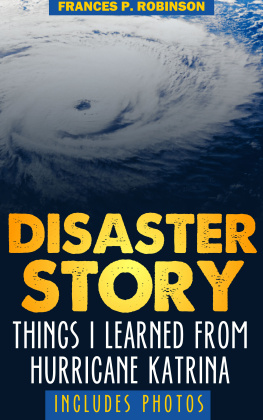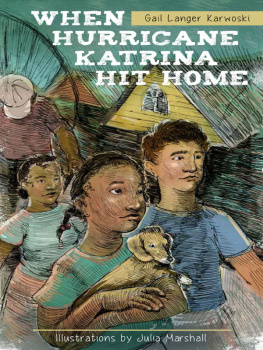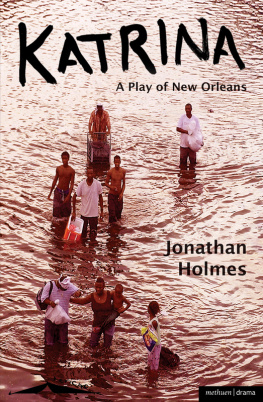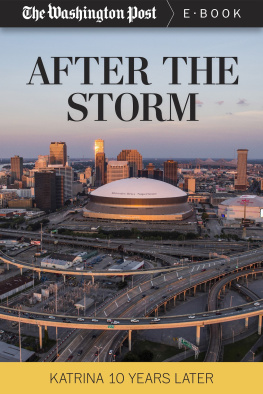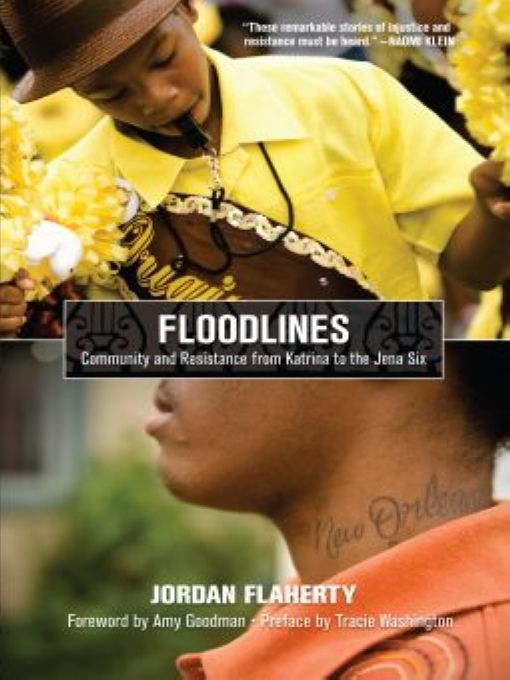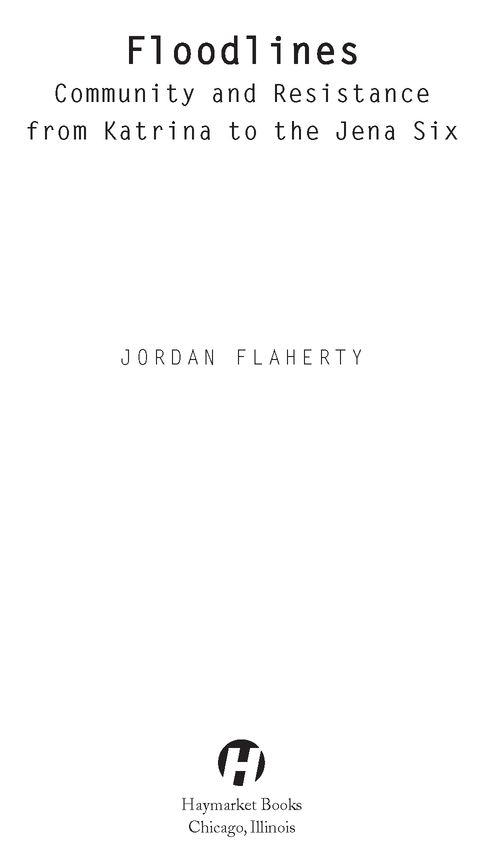Table of Contents
PRAISE FOR FLOODLINES
As the floodwaters rose in New Orleans, Jordan Flaherty began to write, rescuing precious truths about the reality of racism and solidarity in his city that risked being washed away in the tide of formulaic corporate journalism. I can think of no journalist that writes with deeper knowledge or more love about this highly contested part of the United States. With a new flood threatening life on the Gulf Coastthis time made of oil, not water, but powered, as always, by greed and neglectthese remarkable stories of injustice and resistance must be heard.
Naomi Klein, author,The Shock Doctrine
Jordan Flaherty is one of the best and most courageous writers in America today. Beyond his obvious writing skills, what I admire most about Jordan is his dedica- tion to truth-telling, to bringing the real and whole America to the American peo- ple. At a time in our nation when there is so much distortion of current events and history, Jordan Flaherty represents the core of who we truly are. And what we are capable of being as citizens of this ever-changing world.
Kevin Powell, author,Open Letters to America
Jordan Flaherty is an independent journalist for the Hip-Hop generation. As a white anti-imperialist who is committed to social and racial justice, Jordan brings out the voices of the victims and survivors of Hurricane Katrina and the levee breach in New Orleans. This book not only speaks truth to power but is a rallying cry for all of us to take action. With this definitive work, the voices of the grassroots, the communities resisting displacement, finally have a voice.
Rosa Clemente, 2008 Green Party Vice Presidential candidate,
Hip-Hop activist, and journalist
The usual Katrina narrative tracks government incompetence during the emergency phase and and corporate greedor inertiain its aftermath. Jordan Flaherty tells a less well known story, centered on the boisterous infrastructure of left-leaning community groups and nonprofits that were fired up by disaster and still struggle to shape New Orleanss recovery. Flaherty is part of that movement. His vantage brings hands-on intimacy to this chronicle and poignancy to his conclusions.
Jed Horne, author,Breach of Faith,
Hurricane Katrina and the Near Death of a Great American City
Jordan describes reality from the ground up. Youve heard of the eagles eye view: this is the earthworms. Jordan knows who actually turns over the earth, and he follows them, even when most look away. His book brings us the good news of whos working for change (and how) but also the reality about the price those people pay for our indifference.
Laura Flanders, host,Grit TV; author,Blue Grit:
True Democrats Take Back Politics from the Politicians
Since Hurricane Katrina hit, Jordan Flaherty haswith spectacular dedicationchronicled New Orleanss political changes with care and passion. His stories are the ones we all want to read: the tireless work of organizers in the city, the obstacles they face and the triumphs they celebratewhich ultimately inspire all of us.
Daisy Hernndez, executive editor,ColorLines
Want to know what really happened to regular people during and after Katrina? Read this book and get the real stories. Read this book and get angry. Read this book and get busy making changes.
Bill Quigley, legal director, Center for Constitutional Rights
Jordan Flahertys work has been indispensable for social justice activists and organ- izations around the country who care about the inequities and social injustices that Hurricane Katrina revealed and exacerbated. He brings the sharp analysis and ded- ication of a seasoned organizer to his writing, and insightful observation to his re- porting. Jordan unfailingly has his ear to the ground in a city that continues to reveal the floodlines of structural racism in America.
Tram Nguyen, author,We Are All Suspects Now:
Untold Stories from Immigrant Communities after 9/11
After the flood, many of us turned to Jordan Flahertys dispatches for real-time real talk about what was really going on in his beloved New Orleans. His from-the- low-ground accounts of how the politics of abandonment, the politics of contain- ment, and racism combined to devastate this proud global city were brave and unsettling. His passionate, unsparing writing on the community organizers and the people struggling to make themselves and their city whole reminded us of the stakes. At this crucial point in American history, Floodlines captures the urgency of New Orleans and reveals why its recovery and renewal is one of the most important battles for justice in our time.
Jeff Chang, author,Cant Stop Wont Stop:
A History of the Hip-Hop Generation
Floodlines is a powerful, moving account of one organizers witnessing of the struggles in the Deep South, and fighting to make a difference. Jordan masters the insiders voice, capturing the real fight from within the heart of the movement.
Jennifer Vitry, executive director, NOLA Investigates
Acknowledgments
This book is in many ways the result of a collective process. Several organizers, writers, and scholars who have deeply influenced my ideas read versions of this book and gave me direct feedback, including Kali Akuno, Clare Bayard, Rachel Breunlin, Nicole Daro, Mike Davis, Francesca Fiorentini, Rachel Herzing, Catherine Jones, Rachel Luft, Manju Rajendran, Emily Ratner, Katy Rose, and Charhonda Thomas. In addition, several other folks responded to individual sections and pieces. They all improved and deepened this work. Emily Ratner also helped me collect maps and graphs and assisted with other research, while Abdul Aziz, a brilliant photographer, allowed me to use his images, including the cover photo. This book would not be the same without their efforts.
Caroline Luft worked with me to edit this book for Haymarket and Im extremely grateful for her crucial contribution.
Much of the reporting that formed the basis for this book was originally published elsewhere, primarily in ColorLines Magazine, which has frequently featured my writing over the past five years. Other print publications that ran early versions of the reporting in this book include New Yorks Indypendent, Left Turn Magazine, San Franciscos BayView, and New Orleanss Data News. I would like to thank all the editors of these publications, especially Daisy Hernandez from ColorLines, for asking me challenging questions and helping to shape my work. My work as an organizer and writer has also been developed in partnership with the wider collective of strategically engaged writers and activists that I work with to publish Left Turn Magazine.
For some of the material that makes up this book, I had direct collaborators. Jennifer Vitry interviewed families at the B. W. Cooper housing development and helped with my research on the Louisiana State Penitentiary at Angola. I interviewed Robert Kool Black Horton with filmmaker Jacqueline Soohen, who, along with her filmmaking partners Rick Rowley and Kouross Esmaeli, conducted many of the interviews with residents of Jena, Louisiana, that helped shape my reporting of events in that town.


